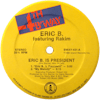The music of Brazil is defined by all-encompassing rhythms. The heartbeat of the African Diaspora infuses itself into every Brazilian genre of music, from percussion-heavy samba to the most minimalist of bossa nova. It is not surprising that Brazil has produced some of the world’s heaviest drummers and percussionists. But there is one drummer who stands apart for being the pulse of jazz, rock, and funk in Brazil: Robertinho Silva.
Silva was born in 1941 in Realengo but grew up in Zona Norte in Rio de Janeiro. His percussive instincts were initially honed pounding on his carpenter father’s homemade stool. It wasn’t long before he was playing a variety of percussion instruments and then the drum kit in local dance bands at the age of fifteen. Silva’s career as a first-call studio musician began after debuting on wax with the so-called “Brazilian Elvis Presley,” Cauby Peixoto, for RCA Victor in 1964.
Though he was inspired by many Brazilian kit drummers, it was the jazz master Art Blakey that cemented Silva’s musical aspirations in jazz, though it was the psychedelic, funky music of the early 1970s that would make Silva an icon.
In 1969, Silva joined the ranks of Som Imaginário, a group mainly made up of musicians from Minas Gerais, the Brazilian state north of Rio. Initially composed of pianist Wagner Tiso, organist Zé Rodrix, bassist Luiz Alves, and guitarists Frederiko and Tavito, Som Imaginário became the backing band for the ascendent vocal sensation Milton Nascimento. The band’s debut would be on the singer’s 1970 album Milton (Odeon), which led to their own self-titled album that same year, the first of three classic Brazilian psych-rock albums.
Nascimento’s grand Milage Dos Peixes introduced the Minas Gerais–born Nivaldo Ornellas to Silva and Som Imaginário. The saxophonist had known Nascimento and Wagner Tiso in Belo Horizonte, where he would occasionally guest with their jazz–bossa nova group Berimbau Trio. Ornellas had come off a two-year stint with Hermeto Pascoal in São Paulo. He would become a regular member of Som Imaginário in 1976.
Fast forward: Silva became quite a name in the world of Brazilian music, playing with everyone from Tom Jobim and Jards Macalé to Ivan Lins and, even, Sarah Vaughn. His international acclaim was highly boosted when he relocated to Los Angeles for a couple of years, where he recorded on Wayne Shorter’s brilliant collaborative album with Nascimento, Native Dancer, in 1974. The fusion/jazz-rock world was served notice of Robertinho Silva.
Silva recorded his debut album as a leader for Phonogram-Polygram’s series Música Popular Brasileira Contemporânea, a wide-ranging and interesting collection of Brazil’s most progressive musicians with a definite jazz-fusion slant. The self-titled release came out in 1981 and featured a large assortment of the who’s who of Brazilian jazz, including a cameo from composer/guitarist/pianist Egberto Gismonti, one of drummer’s regular collaborators.
In 1983, Gismonti started his own label, Carmo, named after the small town he was born in. Having a long and deep interest in contemporary classical, progressive jazz, and Brazilian folkloric music, Gismonti’s label showed his eclecticism with a wide variety of Brazilian artists connecting elements from all these styles.
It was for Carmo that Silva recorded his sophomore album, Bateria, in December of 1983 and January of 1984 at Estúdio Porão in Rio. For the recording, Silva enlisted his old friend Nivaldo Ornellas on soprano sax and flute as a guest with his trio that featured two musicians a decade younger: guitarist Ricardo Silveira and bassist Nico Assumpção.
Silveira grew up in Rio loving rock and blues along with jazz and Brazilian music. He matriculated at Berklee College of Music in Boston and then relocated to New York where he played with Astra Carnival and Herbie Mann. It was in New York that Silveira struck up a friendship with Assumpção. The bassist was originally from São Paulo and followed the musical footsteps of his amateur bassist father. Assumpção moved to New York and was told to seek out Silveira, with whom he would collaborate with until Assumpção’s passing in 2001.
Bateria starts slowly with an improvised ballad entitled “Cara De Palaço,” the name translating to “clown face.” Tension begins to ebb and flow as Silveira’s guitar-synth provides swathes of sound over Silva’s drums and Assumpção’s resonant electric bass. Ornella’s pointillistic soprano floats over all. The track evaporates into a cloud of cymbals and percussion, leading to a solo feature for Silva and the title track, an incredible display of drum kit pyrotechnics. The leader’s “Barra 200” (cowritten with percussionist Realcino Lima Filho, better known as Nenê) lands the listener straight into the heart of fusion land, Silva’s DX synth establishes its own particular sound world while Silveira and Assumpção provide incredible string-slinging dexterity. The bassist’s “Balada” allows for his bass to sing over a bed of synth and Silva’s restrained percussion.
The B-side begins with Silveira’s long, suite-like “Pica-Pau.” The faint guitar strums emerge from an electric haze as bass and drums begin to build into an insistent and esoteric but funky backbeat. The guitarist shows off his John Abercrombie–like touch with some incredible solo moments. The best moments are when the trio comes together in a gritty groove and Ornellas reemerges on flute. The group’s “Kalimba” begins with slightly sinister Blade Runner synths as low drums, bells, and quicksilver bass lines begin their tribal-prog dance. The recording concludes with a short percussion feature, “Ginga,” named after the foundational movement of capoeira, where Silva layers drums, berimbau, and synth in a crazy percussion bomb.
The album is a great example of ’80s fusion with its blend of bombast and mysterious, ethereal touches. Even the DX7 synth sounds good here (a rarity). The fact that a percussion genius was behind it all only adds to the recording’s elevation in the genre.
At eighty years of age, Robertinho Silva has still maintained a special place in the Brazilian musical sphere, balancing his interests between jazz and popular Brazilian music.


